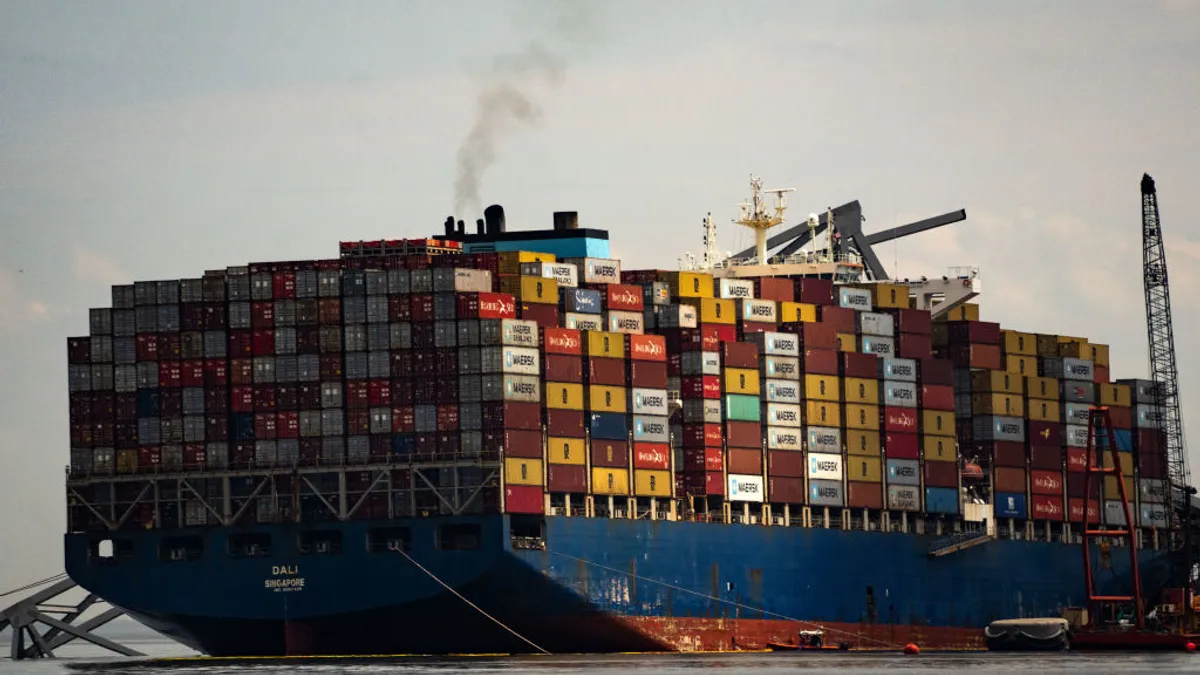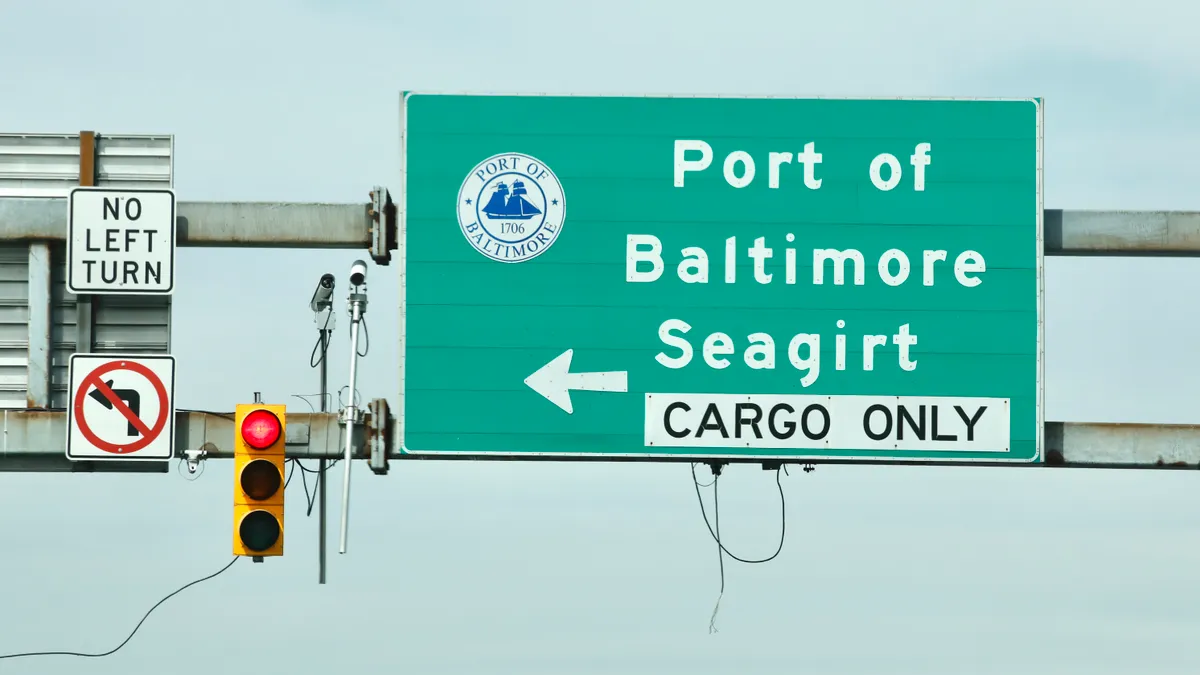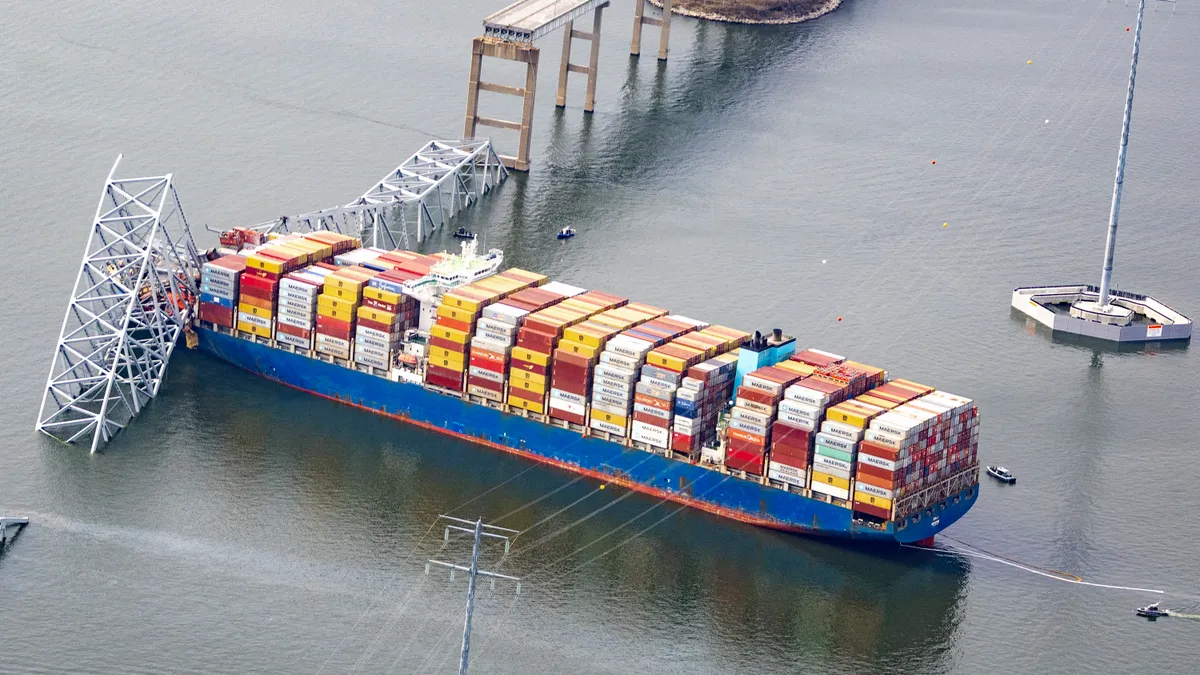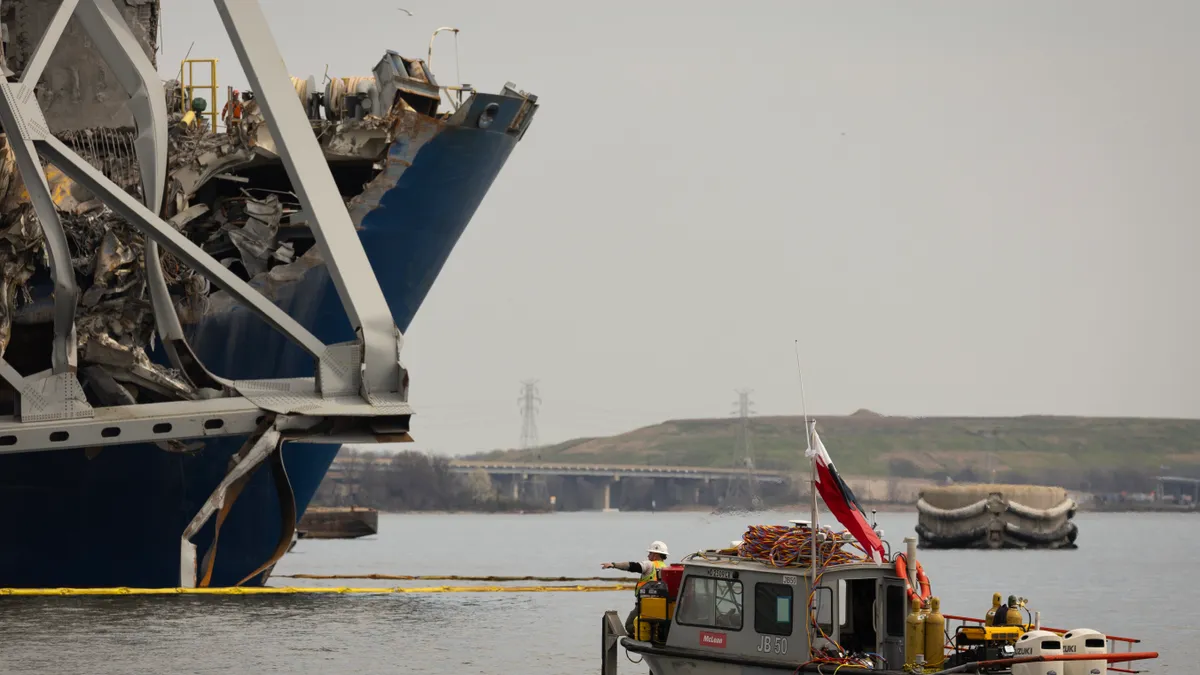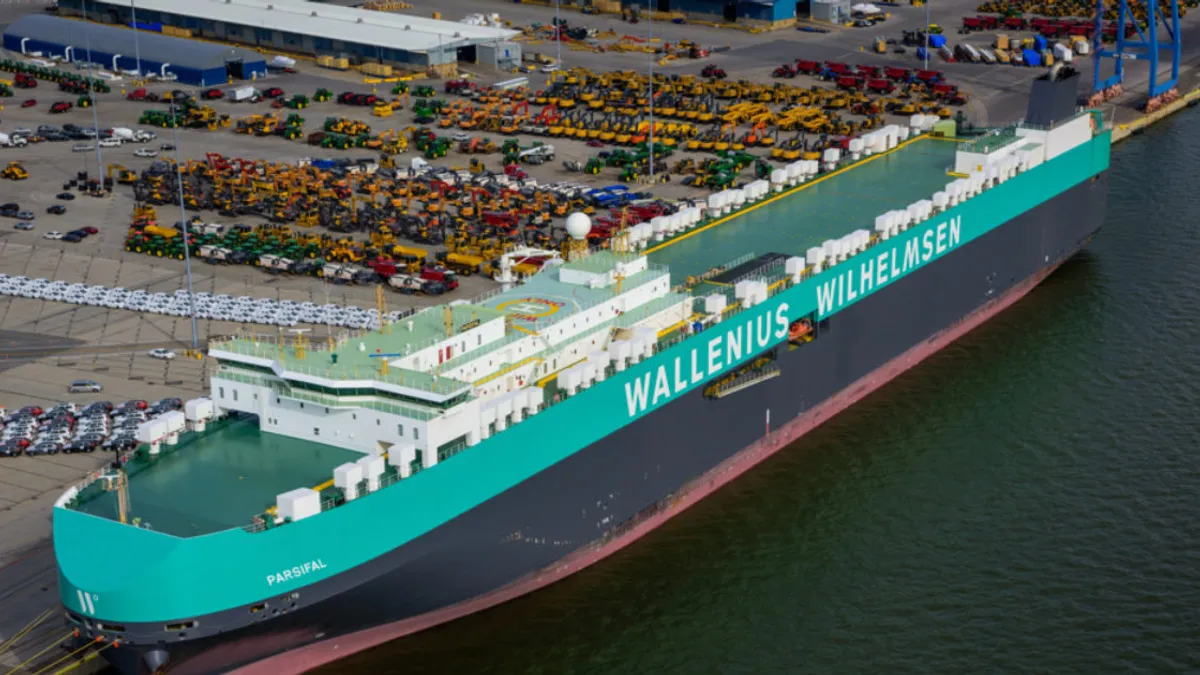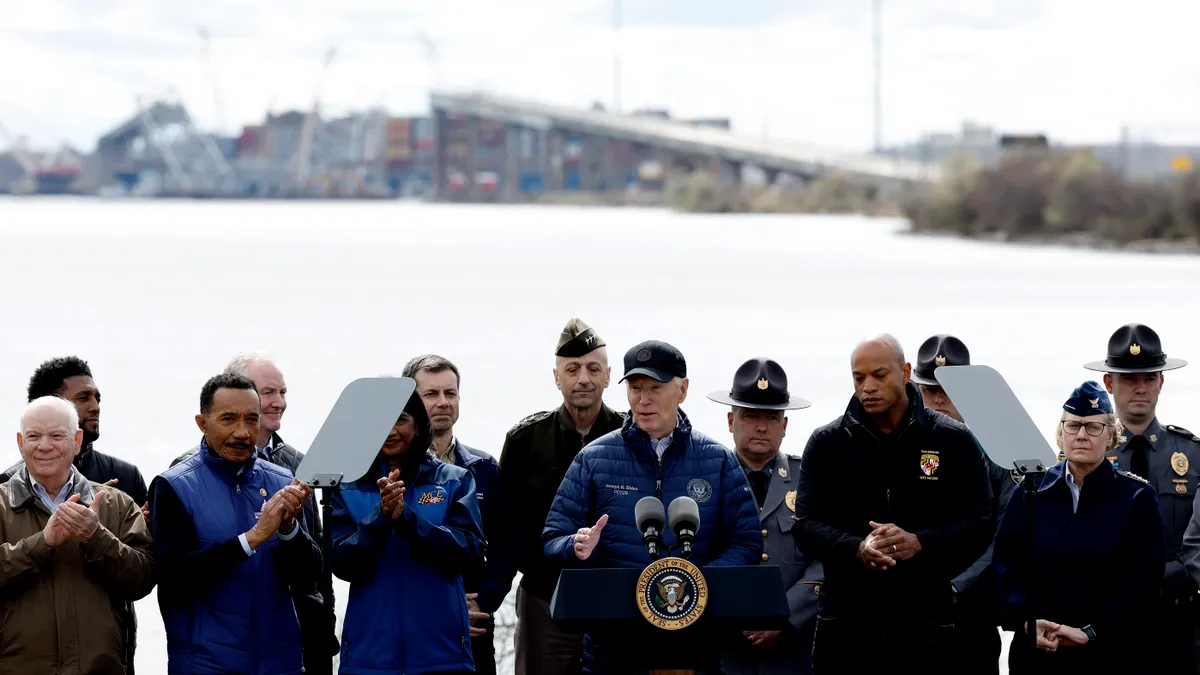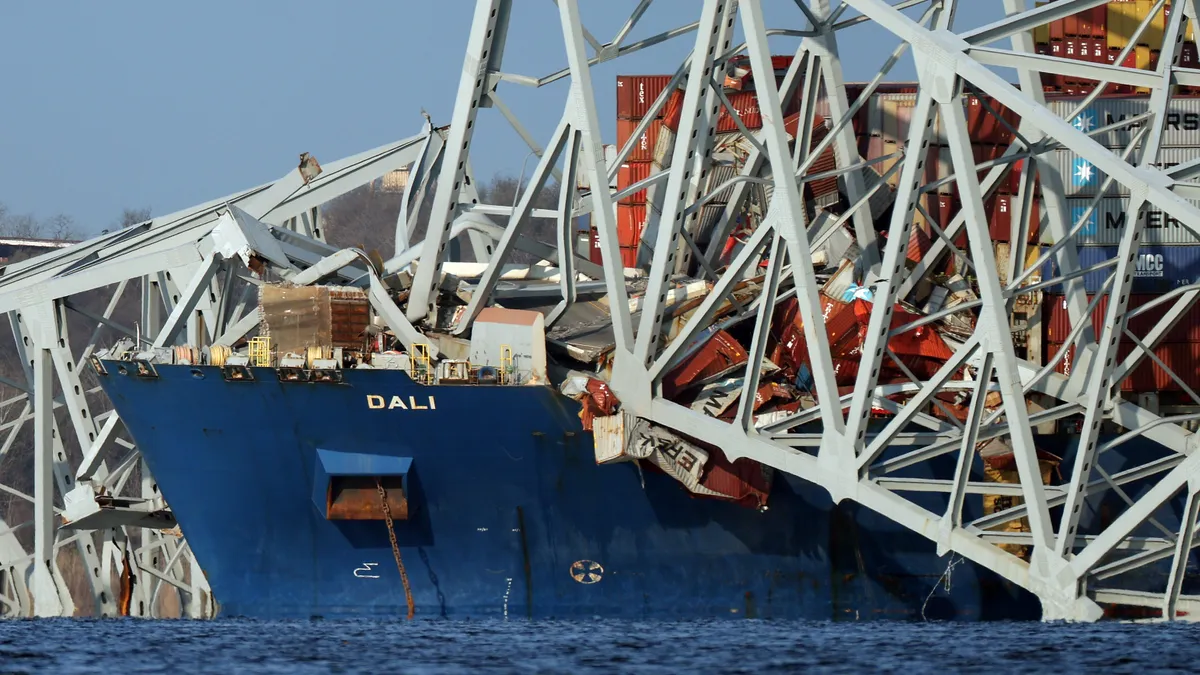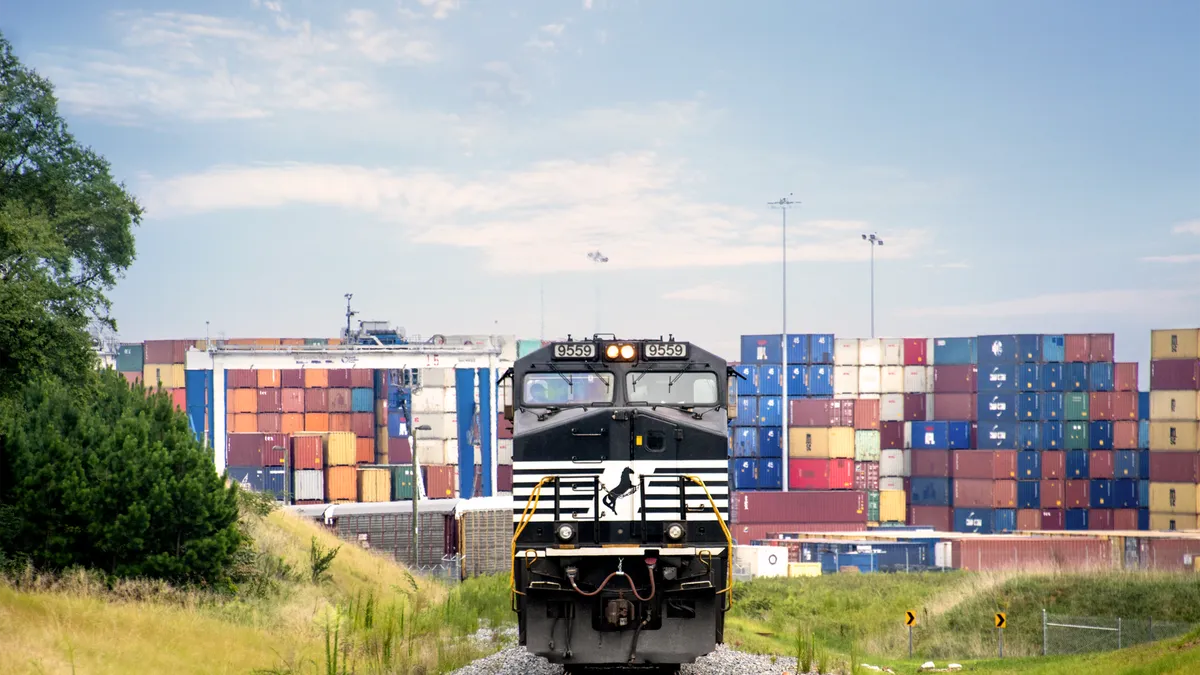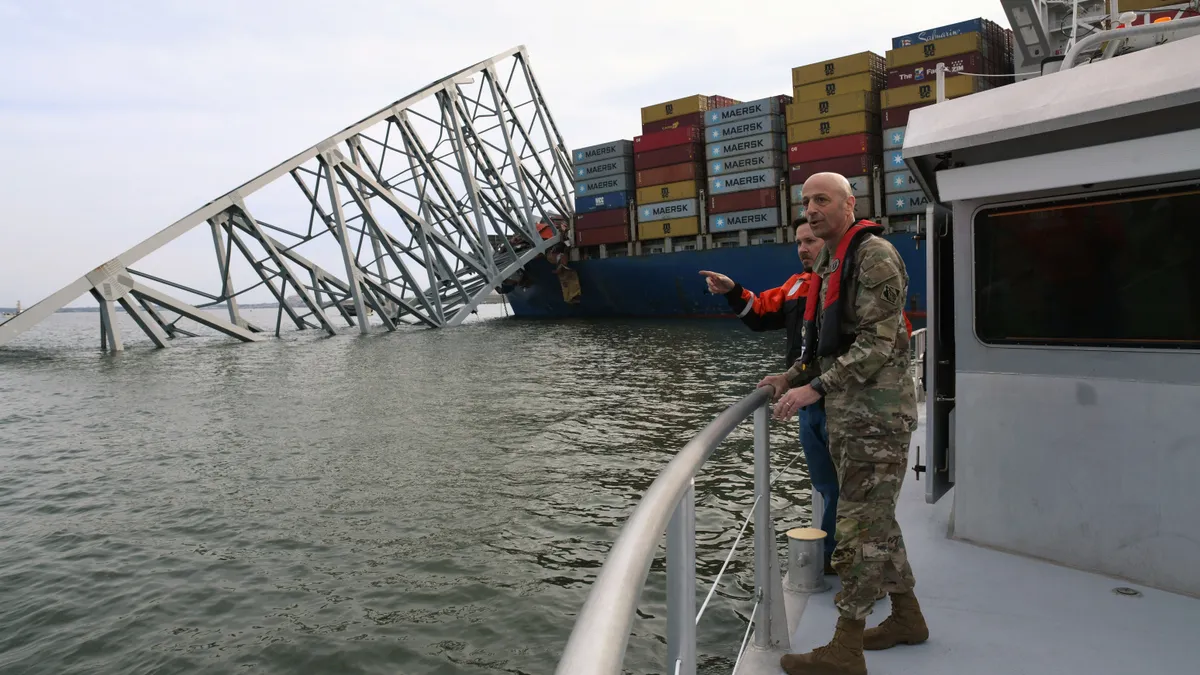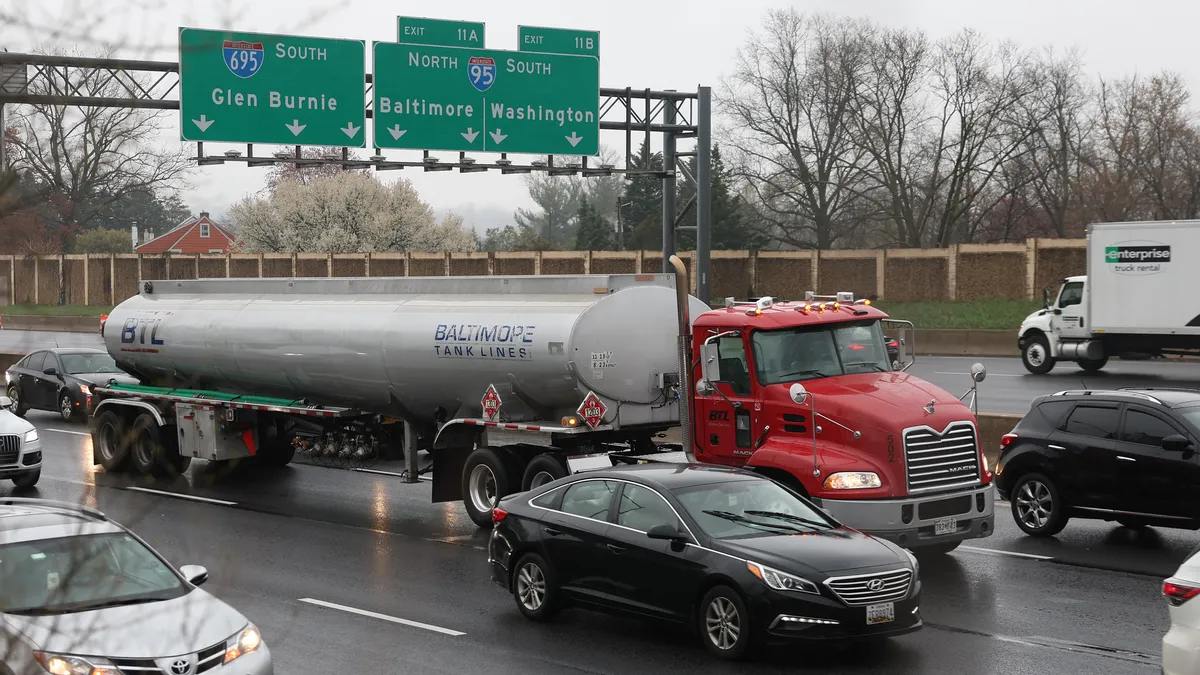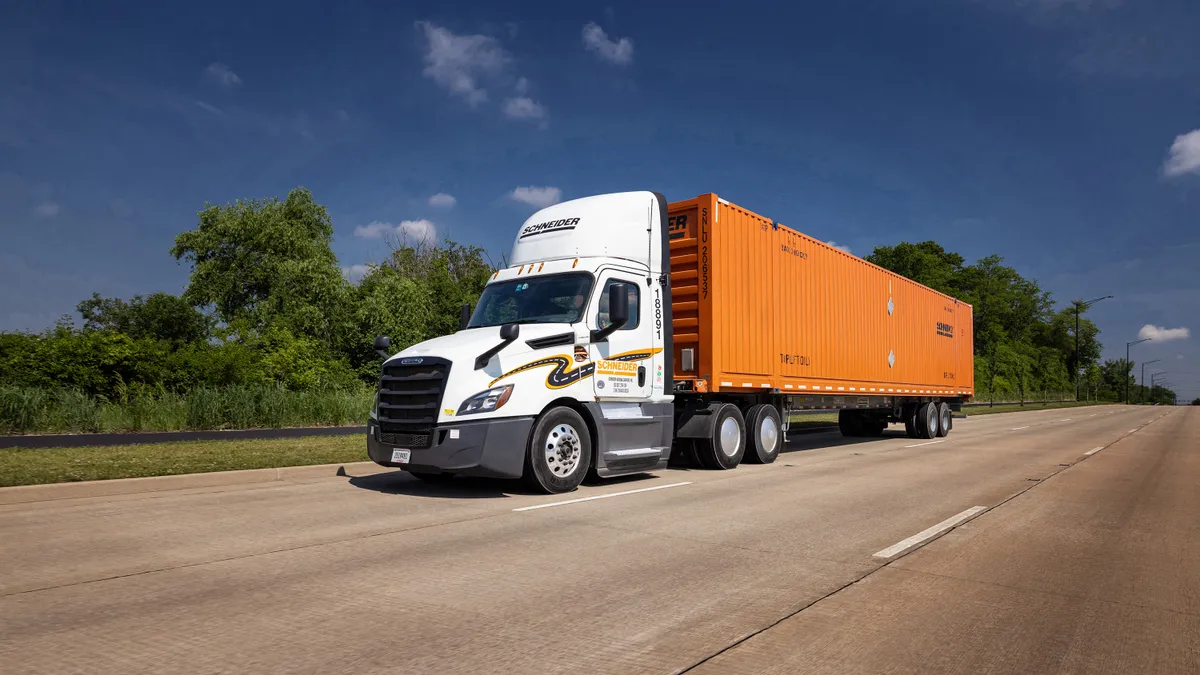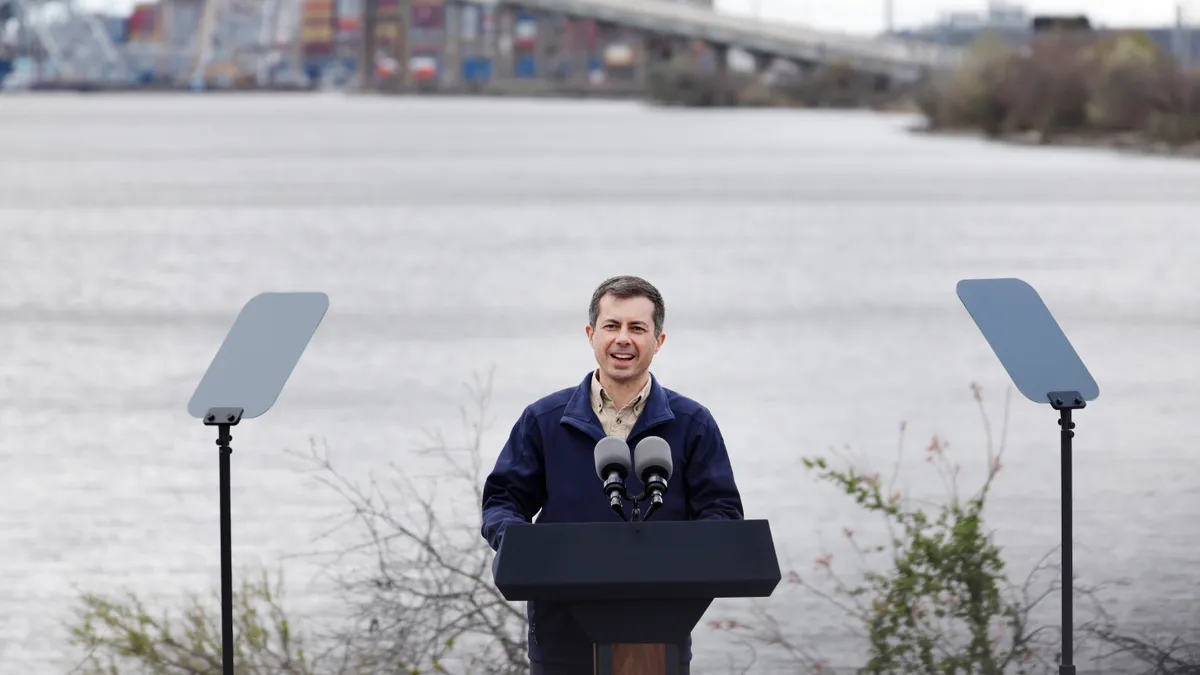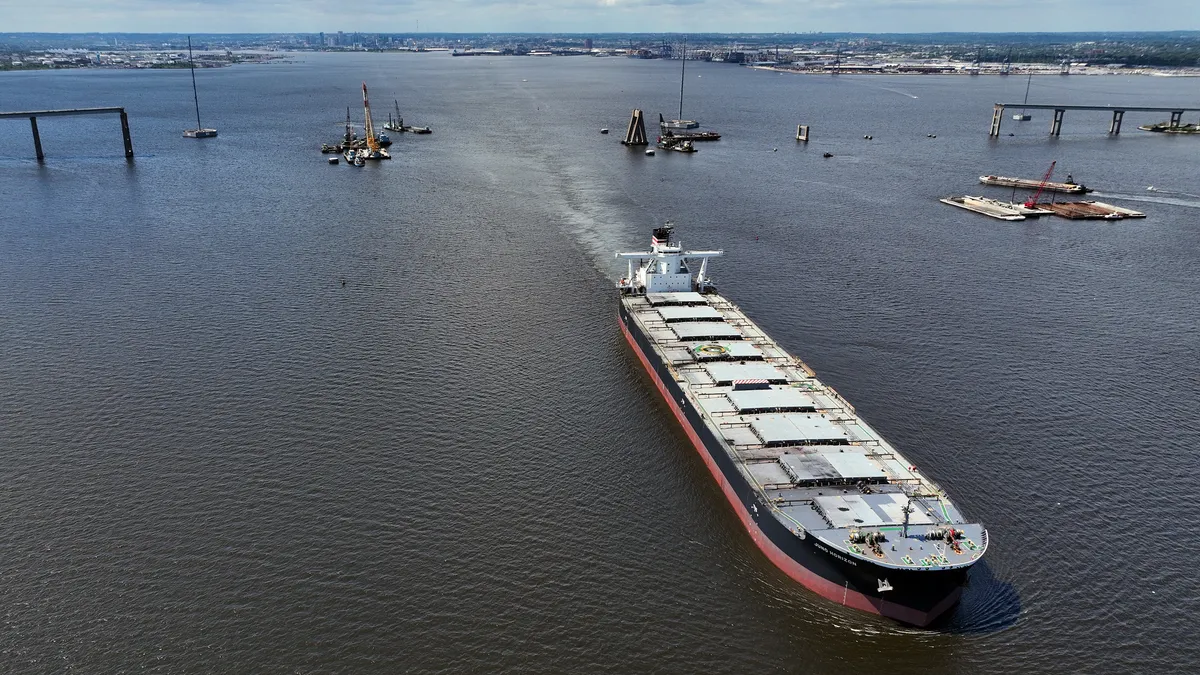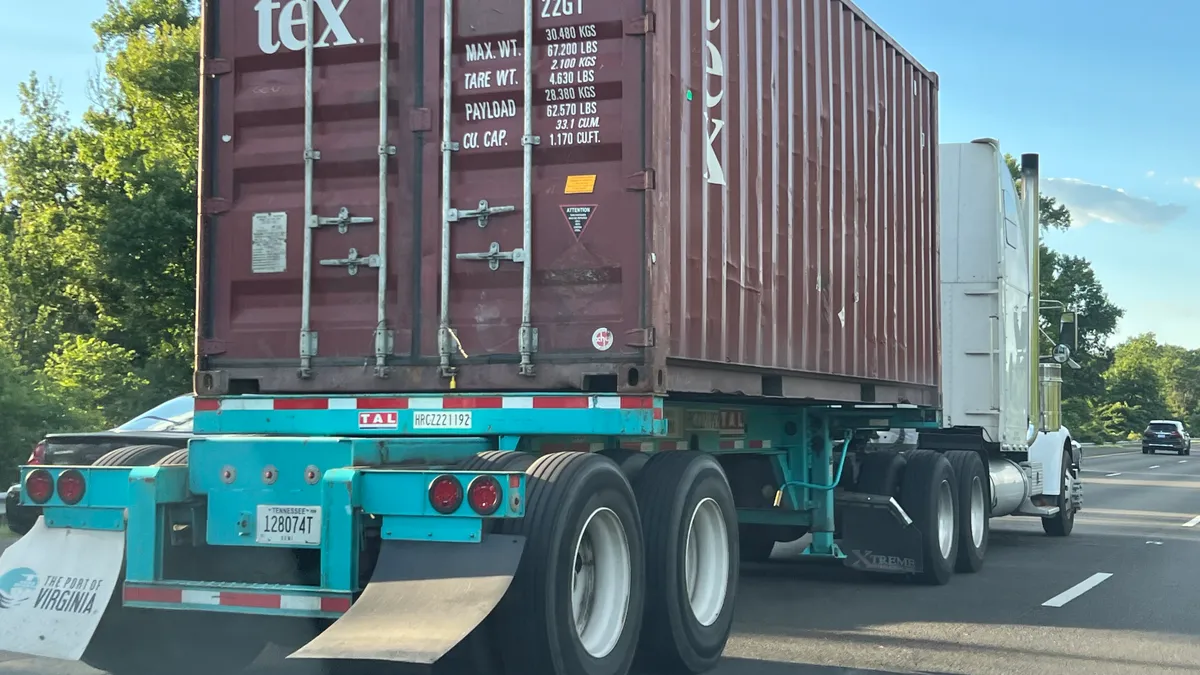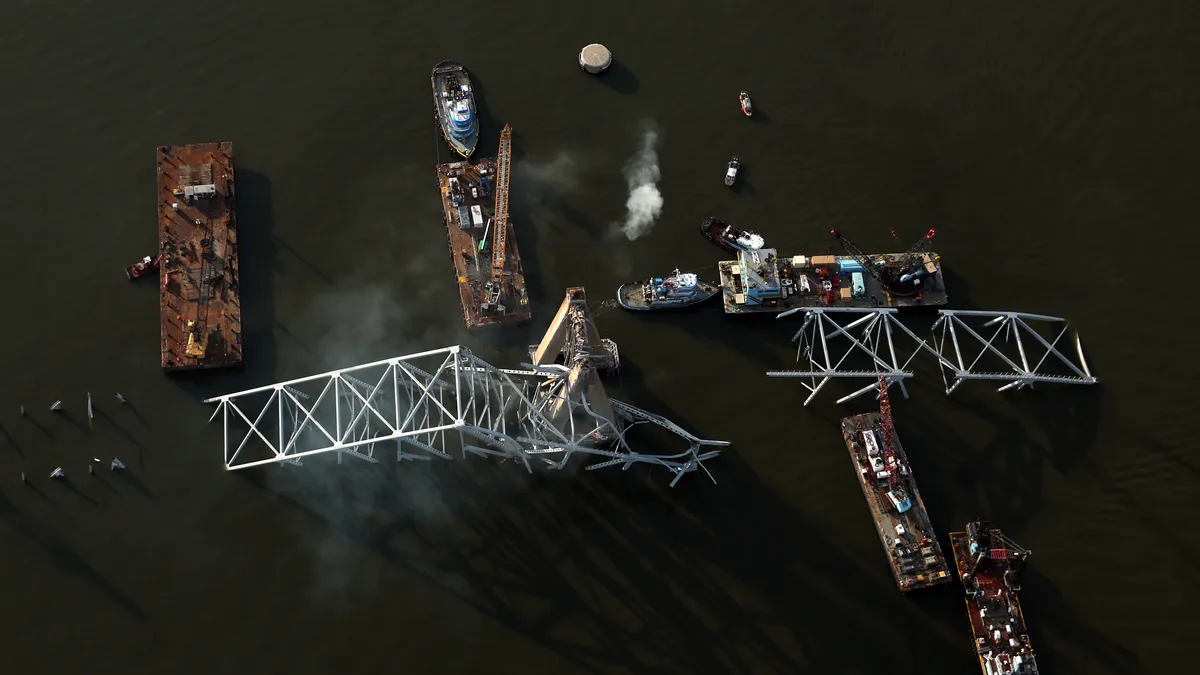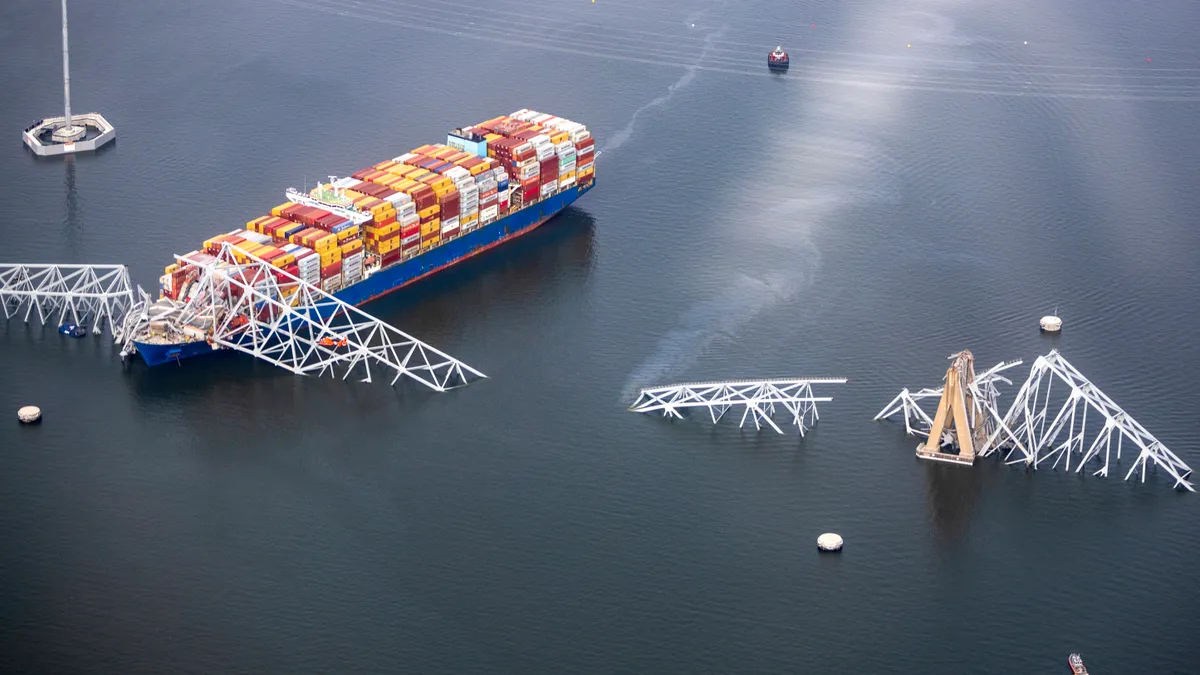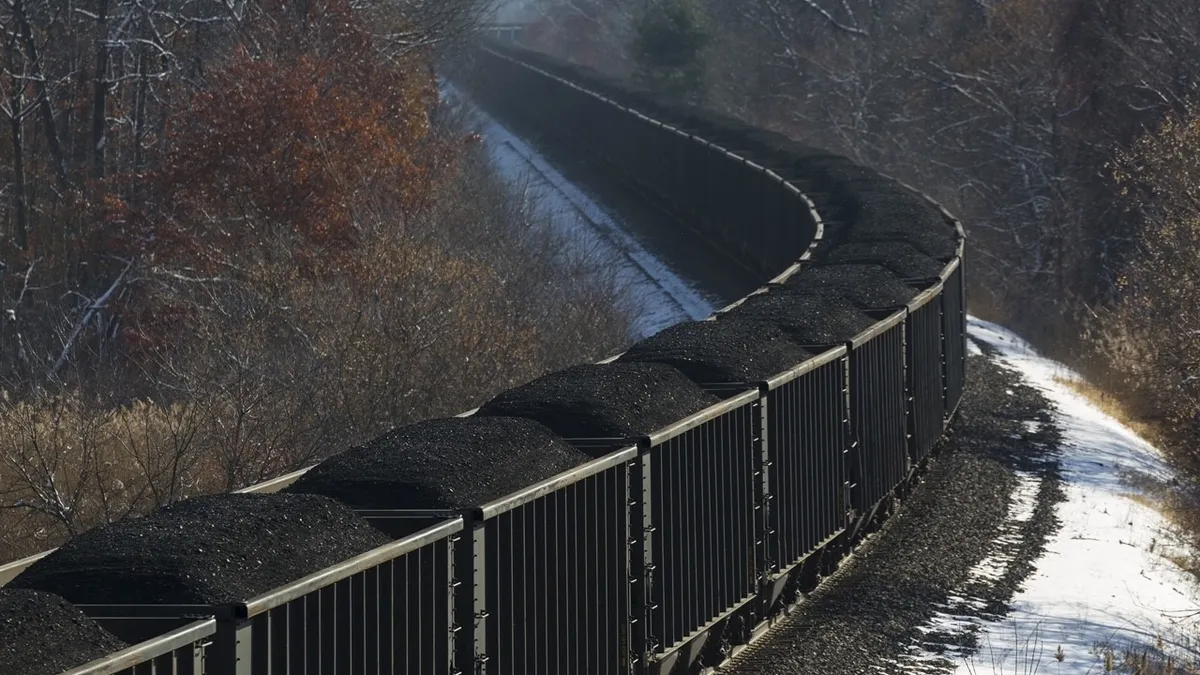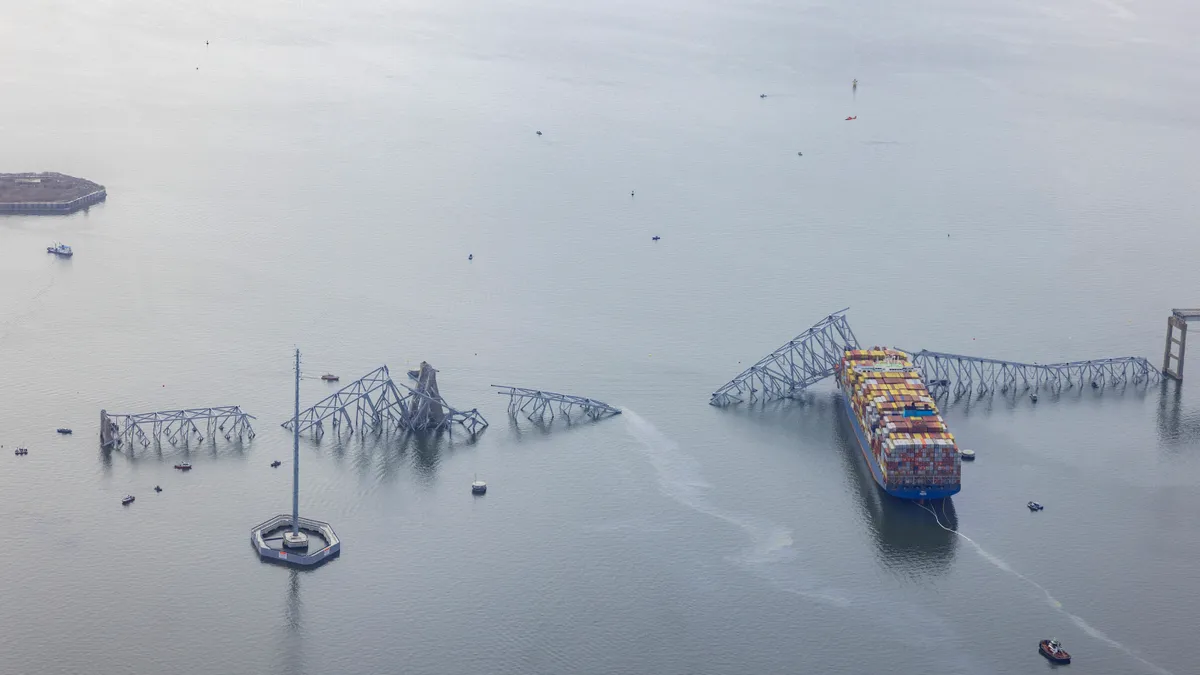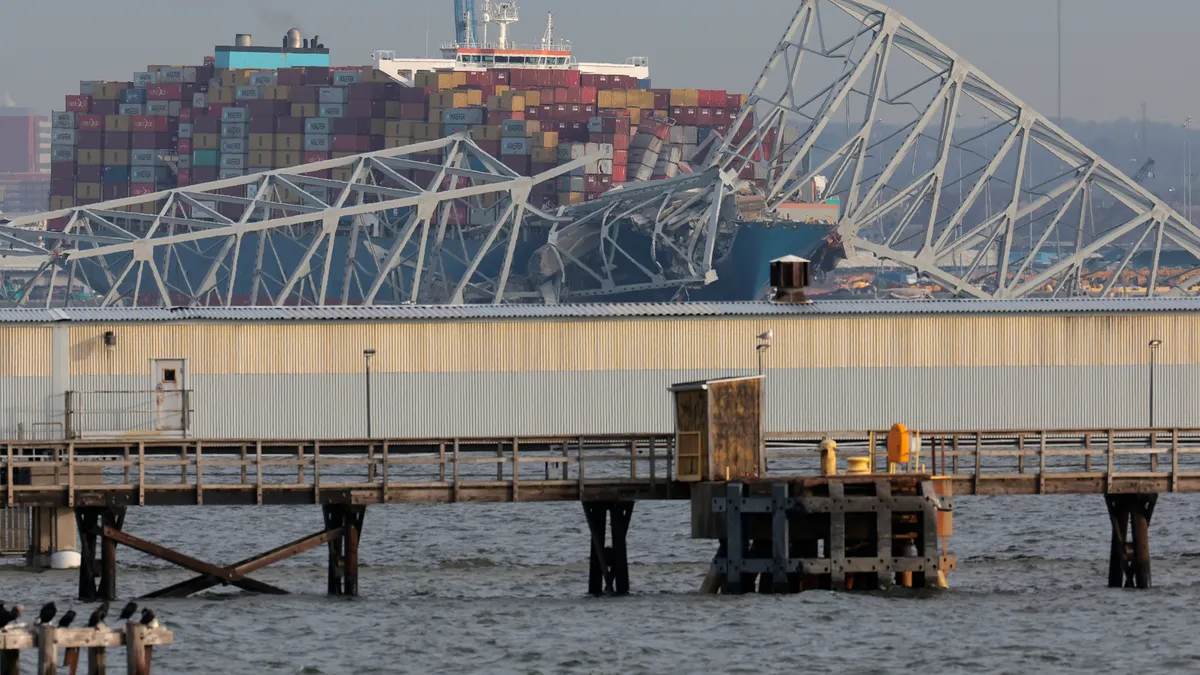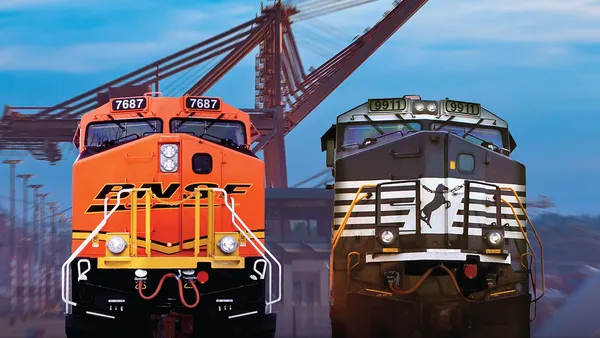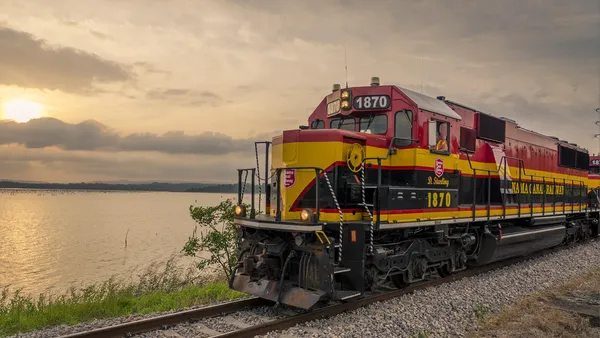In the aftermath of the Baltimore bridge collapse, supply chains are showing their resiliency amid pain points and logistical challenges like traffic congestion and volume diversion.
Stakeholders have adapted to keep cargo flowing, even amid longer permitted hours for truckers, a rapid response to fully restore the channel, and nearby ports noting their ability to help handle diverted cargo.
The Port of Virginia, for example, handled 291,700 TEUs in March, and the port expects to handle an additional 18,000 to 20,000 containers through April, Senior Director of Communications Joe Harris told Supply Chain Dive.
“It sounds like a lot. It is a lot, but we're able to soak it up. We have that level of capacity,” Harris said, noting that the volume increase is manageable — being an influx of cargo rather than ships.
Additionally, railroads responded with more trains between Baltimore and New York, forwarders are navigating challenges and truck lane pressures have been met with ample capacity.
At the same time, a spike in congestion following the tragedy has meant some trucks have had certain trip times double or triple, the Federal Motor Carrier Safety Administration said in a public meeting on April 10.
While container import logistics and chassis repositioning may present certain difficulties, capacity is responding after the bridge collapse, said Jonathan Eisen, executive director for the American Trucking Association’s Intermodal Motor Carriers Conference. Import issues are more about delays and hurdles rather than unmanageable disruption.
Former Federal Maritime Commissioner and ex-Maryland Port Administration Executive Director William Doyle said in a LinkedIn post that supply chains are showing their flexibility to the bridge collapse, which is expected to have a minimal impact on many cargo categories.
He noted that coal exports from western Pennsylvania and northern West Virginia are affected, and pulp products at the Port of Baltimore are also significant. But everyday “retail items will not be affected,” he said in the post.
“The supply chain is resilient,” Doyle wrote, “just like Baltimore.”



